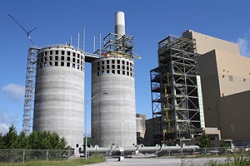College and university students are back in school around the country and this fall, more students, professors and employees than ever before have access to electric vehicle (EV) charging stations. ChargePoint, an open EV charging network, has released new data showing an increase in on-campus EV charging.
 Today there are 1,134 charging spots at colleges and universities on the ChargePoint network. That’s up nearly 35 percent, with just 838 at this time last year. On-campus EV charging is still relatively new, with the first ChargePoint station installed at the end of 2010 at Pasadena City College.
Today there are 1,134 charging spots at colleges and universities on the ChargePoint network. That’s up nearly 35 percent, with just 838 at this time last year. On-campus EV charging is still relatively new, with the first ChargePoint station installed at the end of 2010 at Pasadena City College.
“American universities are often our hubs of innovation and technology,” said Pasquale Romano, ChargePoint’s CEO. “It is no wonder adoption of electric vehicles and charging infrastructure has prospered on college campuses. Our data demonstrates which colleges and universities are leading the way when it comes to supporting low and zero emission vehicles. We hope this helps spur friendly competition between campuses to be the greenest institutions in the world.”
With 38 on-campus charging spots, the University of California at Davis has the most of any university on the ChargePoint network.
Here are the top 5 colleges and universities with the most ChargePoint EV charging spots:
- University of California at Davis: 38
- Towson University, Maryland: 36
- Santa Clara University, California: 26
- Western Michigan University: 22
- Massachusetts Institute of Technology: 21
Click here to see the full list of on-campus EV charging stations.









